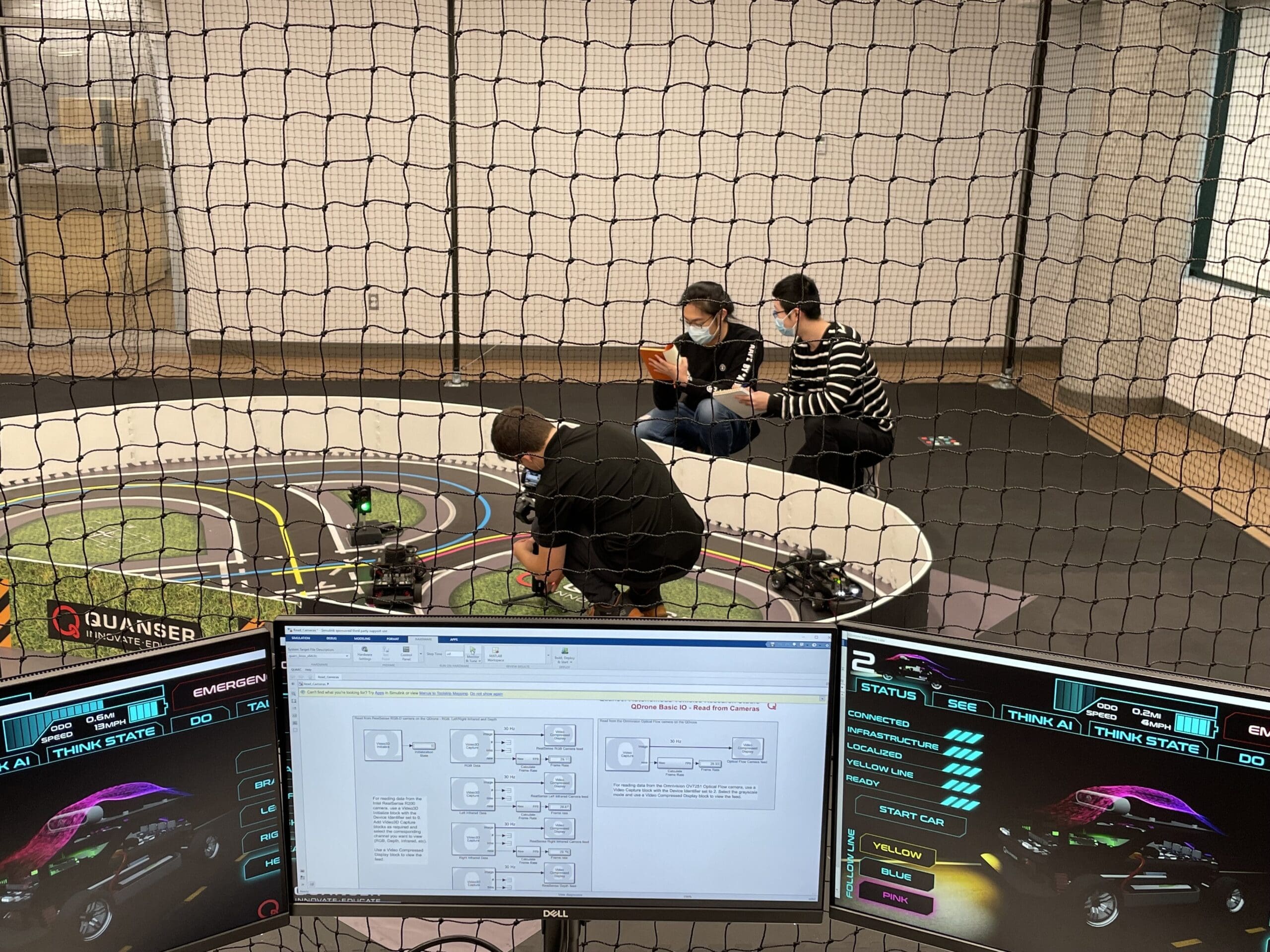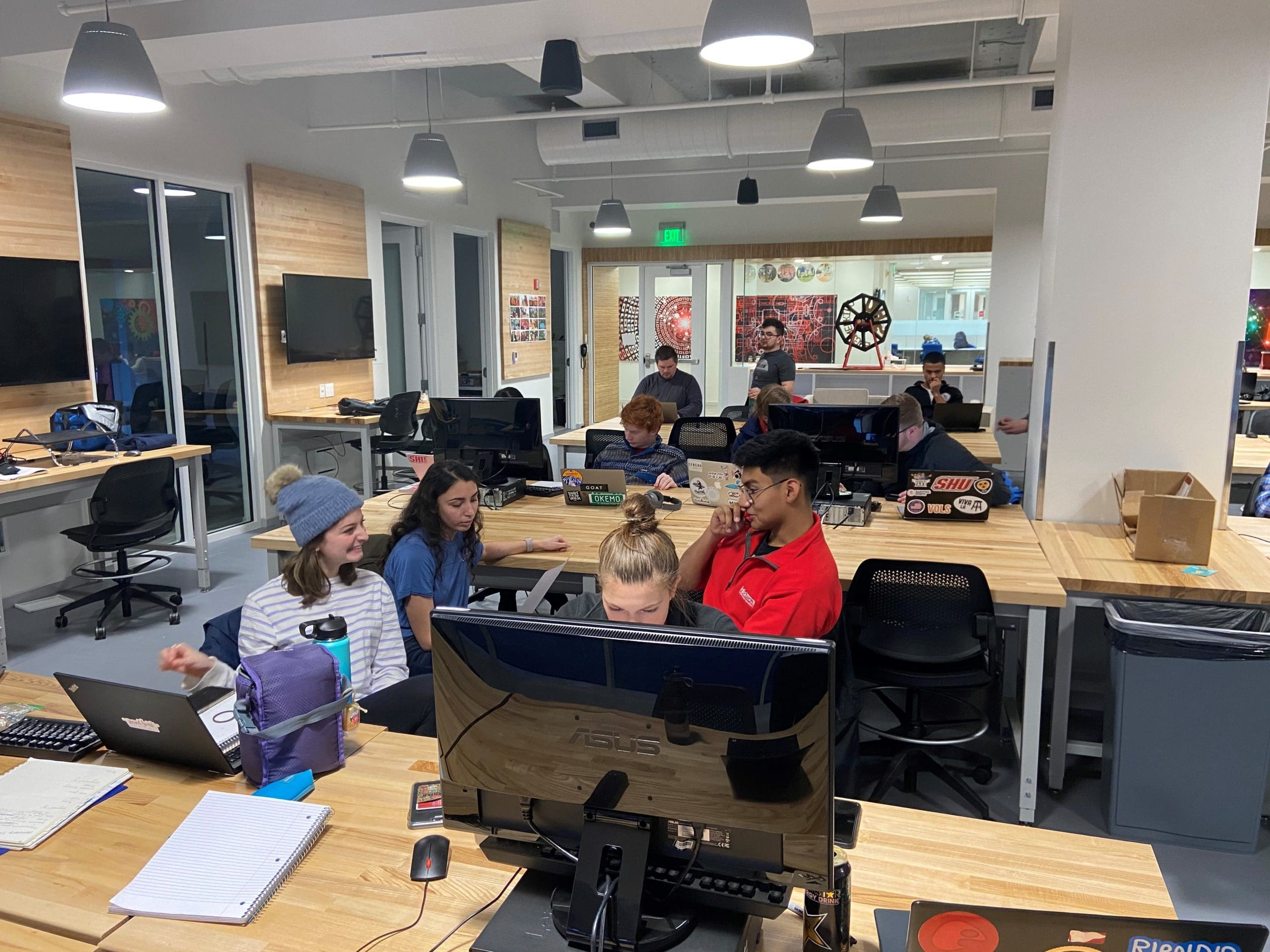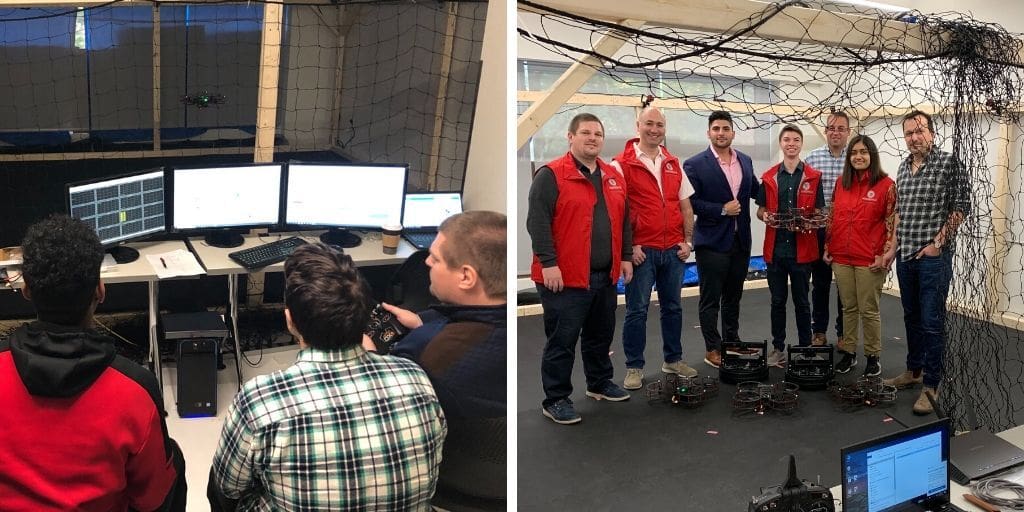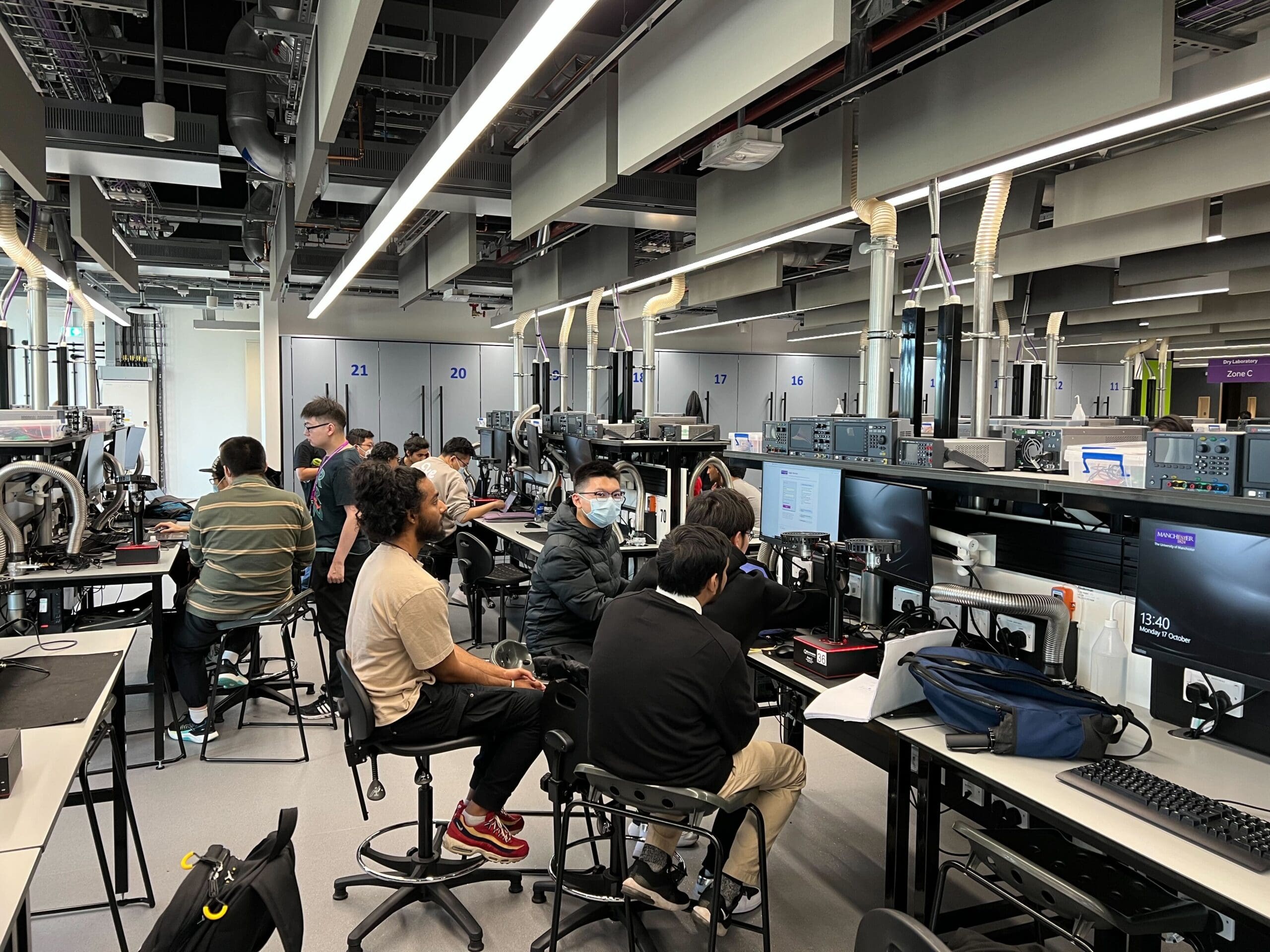
For the past two years, Quanser has been on an exciting journey with the University of Manchester, working together to transform their control engineering program including both undergraduate and postgraduate studies, as well as research projects. These efforts are part of our ten-year partnership aims to turn traditional education into a dynamic, hands-on, project-based experience. In just two years, we’ve made remarkable progress. I recently had a chat with my colleague, Dr. Daniel Abara, who is based at the University of Manchester, as part of our ongoing partnership, we discussed how we’ve integrated our cutting-edge technologies with the university’s curriculum to create unparalleled practical experiences. This collaboration is set to inspire universities worldwide, showing how innovative approaches can reshape education. I’m thrilled to share our progress with you through a series of case studies. Stay tuned for updates as we continue this transformative journey.
In late April, I had a conversation with Daniel, who shared how the collaboration between Quanser and the University of Manchester has significantly enhanced their control engineering courses. Quanser’s involvement goes beyond supplying hardware. We work closely with the university’s faculty to develop customized course materials and support strategic research initiatives. Daniel’s role at the university epitomizes this effort, as he aids in lab management and curriculum development, significantly enriching the hands-on learning environment.
Before diving deeper into the programs, I asked Daniel how much the students enjoyed our lab. He mentioned running surveys and questionnaires, where students repeatedly described it as “the best lab they ever had.” This feedback changed my perspective and made me curious to understand what makes these labs exceptional.
Challenge
To understand the reasons behind these exceptional experiences, let’s look at the needs this partnership aims to address. The University of Manchester has a rich history in Control Engineering, with the Control Systems Centre, established in 1966, leading in research and education. The university offers one of the earliest MSc degrees in Control Engineering, demonstrating its commitment to advanced education.
Manchester has one of the largest engineering schools in the UK, with about 7,000 students and over 700 staff. Control Engineering is integral to degrees in Electrical and Electronic Engineering, Mechanical and Aerospace Engineering, Chemical Engineering, and Mathematics.
To stay at the forefront of engineering education, the University of Manchester recognizes the need for a transformative approach. With technology rapidly evolving and a trend toward hands-on learning, the new Manchester Engineering Campus Development (MECD) is designed to foster collaboration and interdisciplinary learning. This facility will help the university maintain its leadership in engineering education.
However, this transformation comes with challenges, including:
- Integrating traditional and hands-on learning in the new state-of-the-art Control Engineering lab at MECD.
- Creating flexible lab spaces that integrate various courses for a seamless learning experience.
- Ensuring equipment and instrumentation meet current and future industry needs.
- Incorporating the latest technologies into the curriculum.
- Developing remote and hybrid learning solutions, especially in response to pandemic challenges.
- Creating new course materials that align with assessment practices and the university’s teaching style.
- Improving research facilities to support students from undergraduate to postgraduate levels in their projects and thesis.
- Rapidly updating and redesigning programs and courses to keep pace with industry needs and trends.
- Ensuring the transformation happens quickly and reliably.
Solution
At Quanser, we’ve been transforming engineering education for over 35 years, offering turnkey lab solutions that include open architecture, high-fidelity digital twins, comprehensive curriculum and courseware, and multi-platform software support. These labs enable serving multiple courses and disciplines using the same platforms, accelerated research, scaffolded hands-on activities, and scalable, expandable solutions from undergraduate education to advanced research. To meet the complex and continuously evolving needs of modern engineering education, our faculty-equivalent experts customize offerings. In partnership with the University of Manchester, one of our engineers, Daina, is working at the university. This close collaboration ensures seamless adoption and customization, making it easier to integrate project-based learning and industry-level skills into their programs.
The University of Manchester started with the Aero 2 platform, installing 63 units in their lab. Aero 2 is a comprehensive lab solution that enables multiple configurations for simulating real-world dynamics, such as the 2 DOF Helicopter, Osprey, and Half-Quadrotor. It covers more control topics than any other platform, making it a multi-year, multi-disciplinary, and multi-purpose solution for engineering education and research. With QLabs Virtual Aero 2, students can access 24/7 lab experiences, perform simulations before physical lab sessions, and benefit from a scalable and accessible platform from anywhere.
In the shared lab environment of MECD, where many products and instruments are used simultaneously, the portability and enhanced safety features of Aero 2 make it particularly suitable. With over 250 institutions worldwide adopting various generations, supported by MATLAB, QUARC Real-Time Control Software, and Quanser SDK for Python and C/C++, the Aero 2 platform provides a versatile solution for both theoretical learning and practical application across many programs.
By reviewing the needs of the University of Manchester and the solutions offered by Quanser, which satisfy most of their current needs, we are close to understanding why students have such exceptional experiences with Quanser. The final part of the answer lies in the subjective nature of the experience. Can we investigate this further? We’ve all been in situations where what we consider the best experience isn’t as interesting to others. Does the Quanser lab experience resonate with students at the University of Manchester only? We frequently hear from students and educators worldwide that Quanser’s products are convenient, easy to use, and inspiring in showing theory applications. To determine if an experience has specific elements that make it great for the majority, we can refer to design heuristics, which are prominent in UI/UX design for providing a good user experience. If an experience satisfies most of these 10 design heuristics principles, it can be considered universally great.

Each design heuristic principle based on the Quanser solution
If I haven’t overlooked any features and functions of the Aero 2, it aligns perfectly with many design heuristic principles, providing an excellent lab experience for students. This alignment helps explain why Professor Long Zhang from the University of Manchester praises this partnership, stating, “Students are so happy because they can see the application.”
Now, like me, you might be excited to see some results.
Result
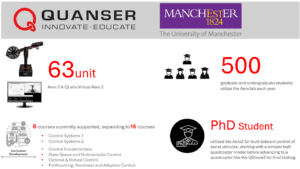
In this partnership for transforming engineering education, we understand that inspiring and motivating students is the main goal. This isn’t possible without integrating the right hardware, software, and courseware to meet modern engineering education objectives. Each course and curriculum has its unique story and challenges, which can only be addressed through Quanser’s expertise and deep knowledge of engineering education.
You will hear more about this in future updates and learn how Quanser solutions help universities transform programs and support publications and research in upcoming case studies. Stay tuned for more about this exciting journey and hear firsthand how a program transforms in the real world.
For more details about the Aero 2 and QLabs Virtual Aero 2, please visit their respective pages.
